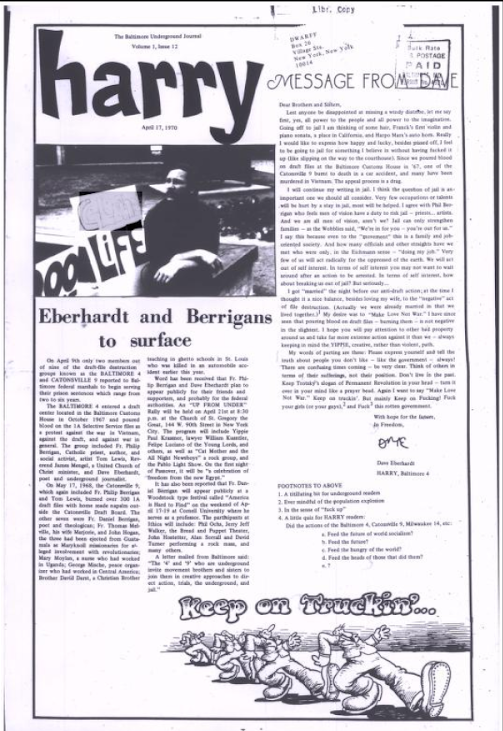By Josie Breck, Periodicals Department
Okay, But Where Are The Memes?
Defined very broadly, a meme is like an in-joke for a mass audience. The sources of memes are often copyrighted, but not as a rule – it’s more about what little chunks of culture resonate with people than the legality of using that chunk for your own purposes. Relaxed attitudes towards copyright allow for memes to spread. That attitude was as endemic in underground press as it is in online communities.

A notorious example was R. Crumb’s “Keep on Truckin’!”, a comic which spread across the underground without his explicit permission. The meme became so popular that companies like A.A. Sales made unofficial merchandise. When Crumb tried to sue A.A. Sales, the comic was ruled to be in the public domain due to a since-rescinded technicality. (Crumb’s appeal to the Sixties underground aside, he often used racial caricature and sexual violence in his work, something he intensified to shake off his popularity. As such, recent critical assessments don’t favor him.)
A notorious example was R. Crumb’s “Keep on Truckin’!”, a comic which spread across the underground without his explicit permission. The meme became so popular that companies like A.A. Sales made unofficial merchandise. When Crumb tried to sue A.A. Sales, the comic was ruled to be in the public domain due to a since-rescinded technicality. (Crumb’s appeal to the Sixties underground aside, he often used racial caricature and sexual violence in his work, something he intensified to shake off his popularity. As such, recent critical assessments don’t favor him.)
There are Similar stories of meme ascension for digital-era cartoonists such as Matt Furie, whose Pepe the Frog became a right-wing signifier. K.C. Green’s work has also hit meme status several times, most famously his “This is Fine” comic. Each of these artists has responded to their work being used in this way with new works which subvert (or rebuke) the audience’s expectations.
A few other memes of the Sixties underground include satirical portrayals of Nixon, the cryptic “Paul is dead” rumors regarding Paul McCartney, and the chorus of Arlo Guthrie’s Alice’s Restaurant, a song which encouraged its own memetic spread.